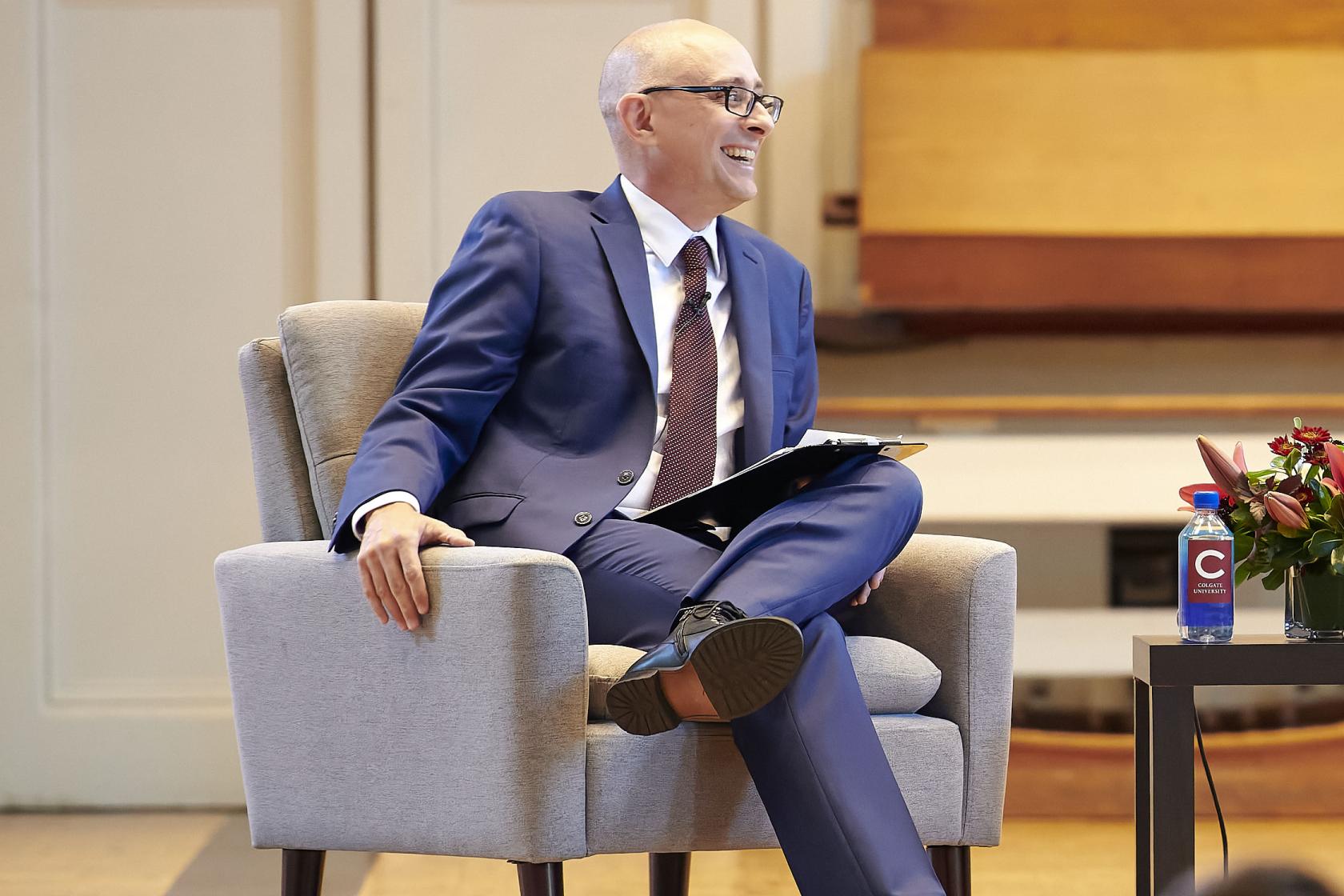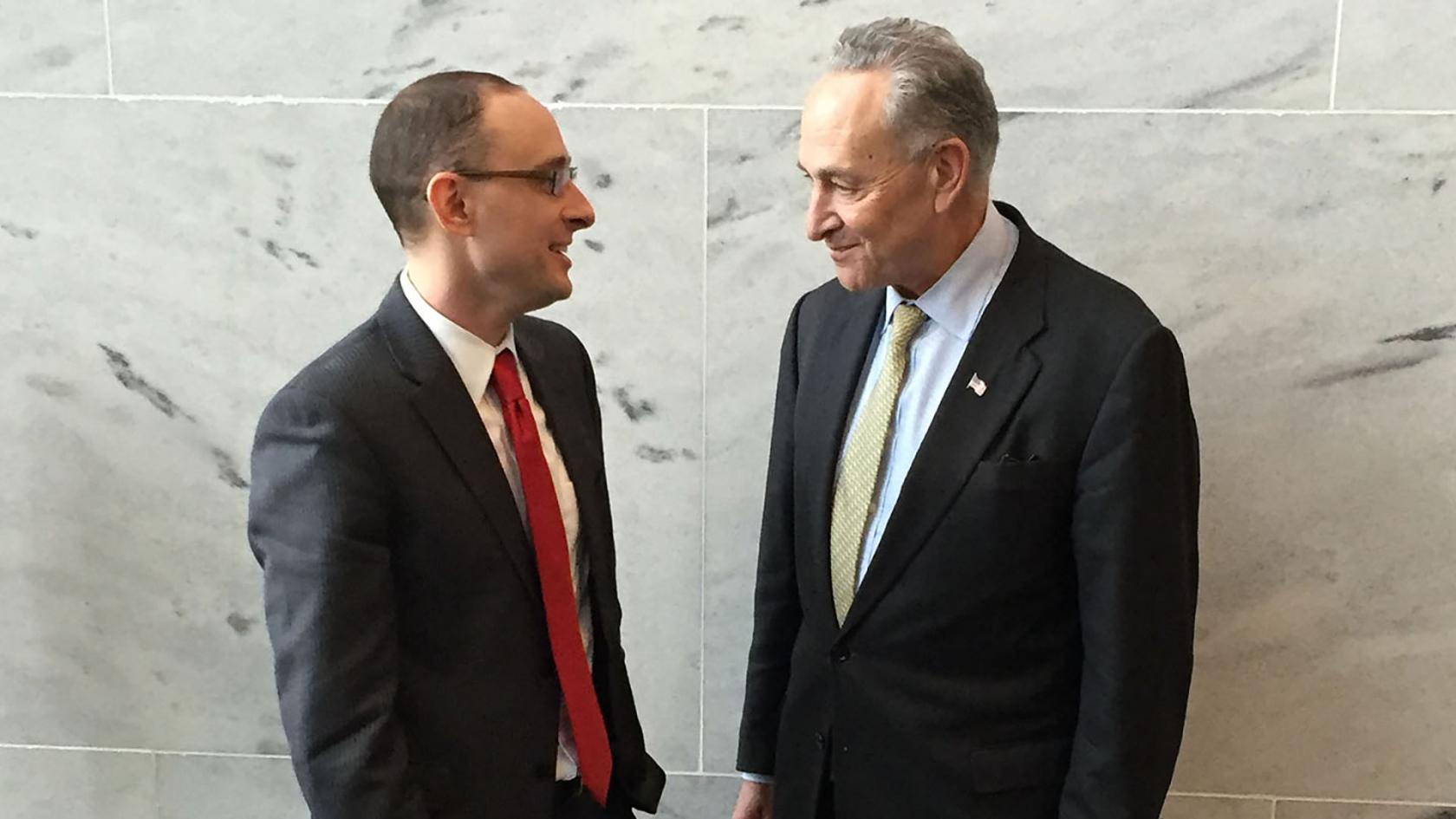With another presidential election looming this November, immigration and the economy are at the forefront of our national civil discourse — W. Bradford Wiley Chair in International Economics and Lampert Institute Director Chad Sparber studies both.
A named chair is the highest academic award that the University can bestow on a faculty member. When established in 1987, the W. Bradford Wiley Chair in International Economics was just Colgate’s 14th endowed chair. The Wiley Chair kicked off a wave of faculty support in the late 1980s and ʼ90s that helped lay the foundation for an institutional priority that continues today. Through the Campaign for the Third Century, Colgate seeks to significantly increase the number of endowed chairs, which provide not only the foundation of the chair holders’ salaries, but also offer dedicated funds to deepen and enhance their research and teaching efforts, like that of Professor Sparber.
His research examines the economic consequences of immigration and endeavors to understand the impact of immigration policy changes made by the U.S. government. Sparber has been published in the Review of Economics and Statistics, the American Economic Journal: Applied Economics, the Journal of Labor Economics, European Economic Review, the Journal of Urban Economics, and the Journal of Development Economics. His findings have been discussed in the Economic Report to the President and cited by the Council of Economic Advisors, the New York Times, the Wall Street Journal, and NPR, and he has testified before the U.S. Senate.
“There are many unintended consequences of immigration on the economy,” Sparber says. “It is my job to ask the questions and think about this issue in ways that others generally don’t.”
Sparber is a first-generation college student. He grew up in a working-class family in Washington State, raised by a police officer father and a bank teller mother, and his parents earned associate degrees, after serving in the U.S Army. “They were not super familiar with a four-year college experience and certainly not the PhD path,” says Sparber, who received his bachelor of arts in economics from Western Washington University in 2000.
With an interest in political science, but possessing strong mathematical skills, Sparber took an economics class in the spring semester of his first year. “I fell in love with economics because we answer politically oriented questions using mathematical tools,” he says. “Some of the thought processes are similar to how I approach problems, so I was instantly drawn to the field.”
Thanks to the encouragement from his accounting professor Stephen Senge, Sparber received a PhD in economics from the University of California–Davis in 2006. In his first year at UC–Davis, he took a macroeconomics course taught by Giovanni Peri. This introduction started a chain of professional collaboration that continues to pay dividends to this day, with the pair co-authoring 10 papers to date.



